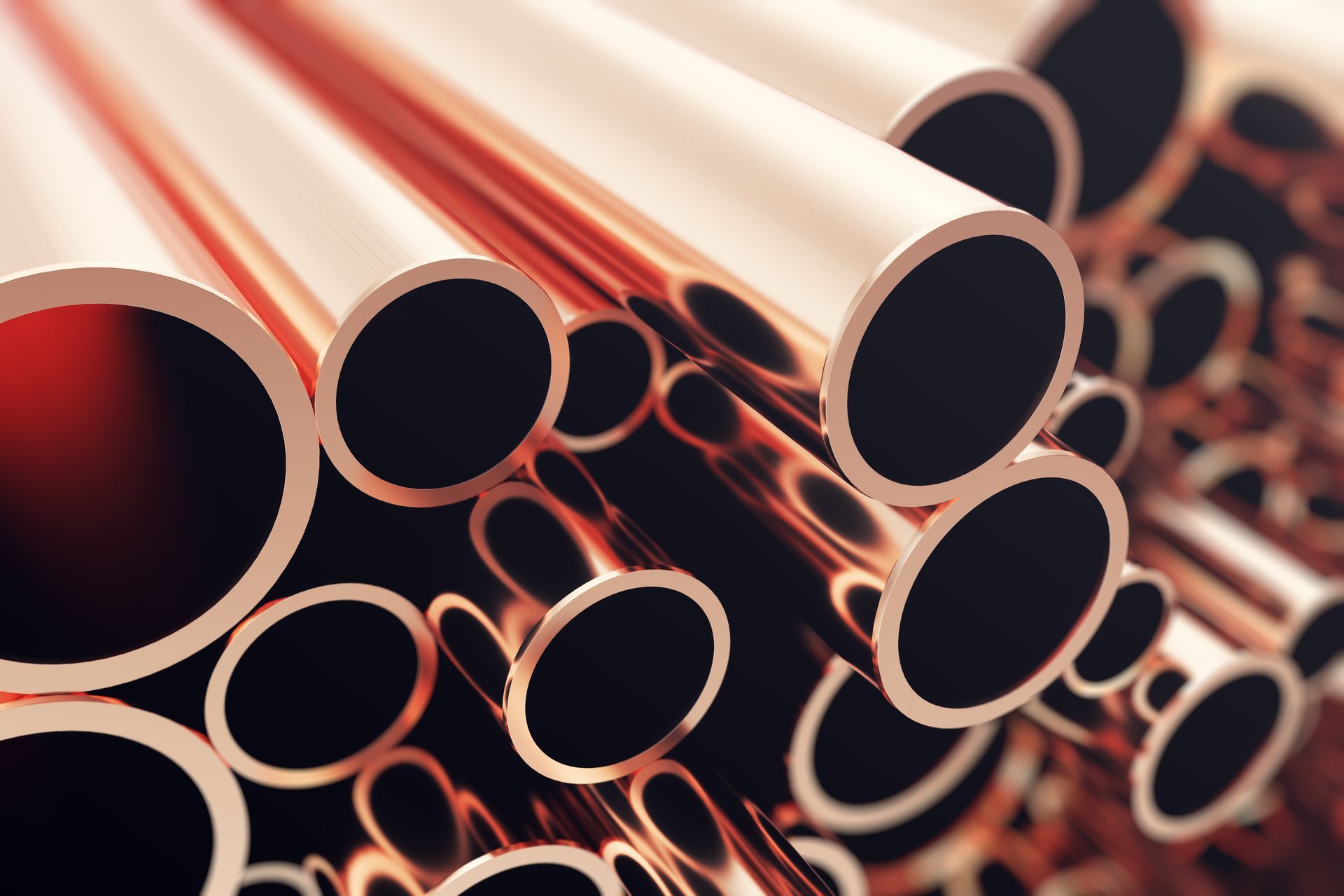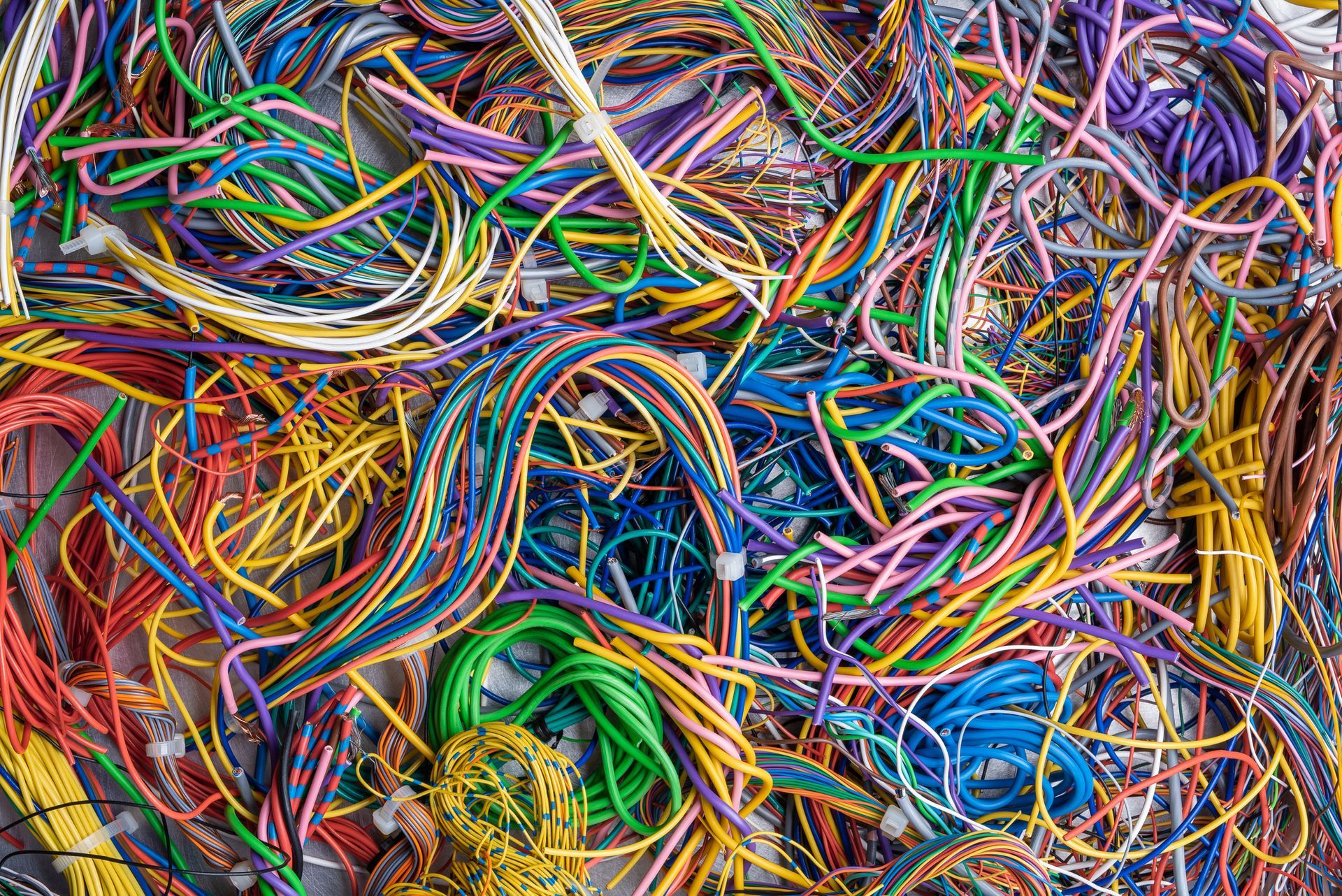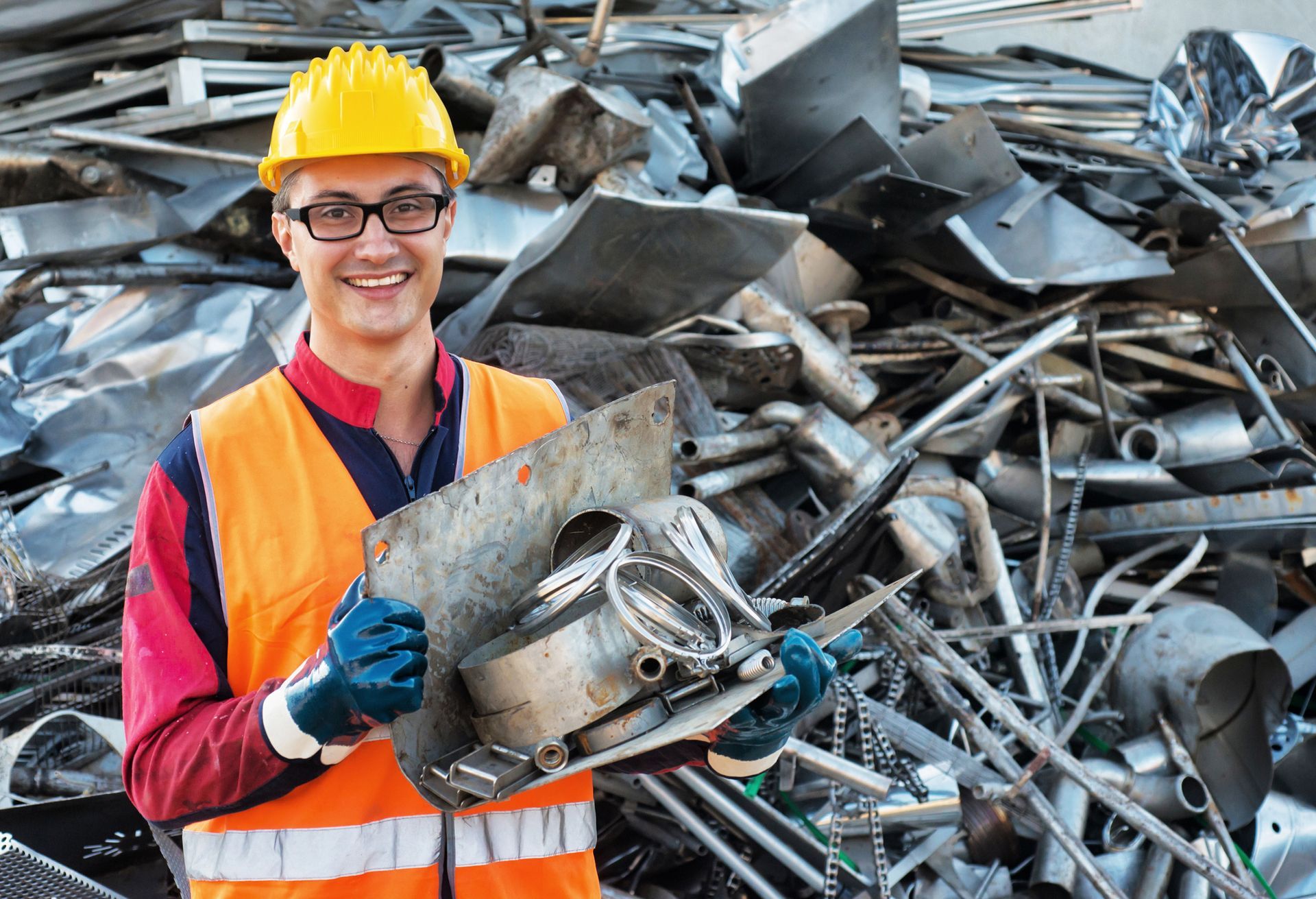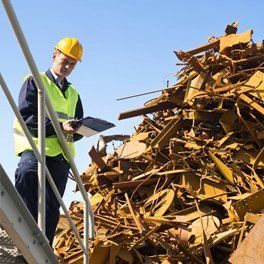Ferrous Vs. Non-ferrous Metals
Properties
The main difference between ferrous and non-ferrous metals is that ferrous metals contain iron and non-ferrous metals don't. But the differences don't end there.
Ferrous metals are magnetic, while non-ferrous metals are not. Some large electrical applications made from ferrous metals benefit from these magnetic properties. However, magnetism is not a desirable characteristic for electrical wiring and smaller electronics.
In addition, most ferrous metals are susceptible to rust, while non-ferrous metals are not. Rust-resistance is a desired feature for products that must weather outdoor temperatures.
Finally, non-ferrous metals are lighter and easier to bend into new shapes and forms. When you recycle a non-ferrous metal product, the recycling facility can transform it into an entirely new product. For example, an aluminum can might become an airplane or bicycle part.
Products
Ferrous metals are particularly strong, which makes them a popular choice in the construction industry. Ferrous metals include:
- Carbon steel
- Cast iron
- Stainless steel
- Wrought iron
You can find these metals in cars, skyscrapers, railroad tracks, tools, railings and cooking knives.
Non-ferrous metals include:
- Aluminum
- Brass
- Cobalt
- Copper
- Lead
- Molybdenum
- Nickel
- Tin
- Tungsten carbide
- Zinc
You can find these versatile metals in pipes, wires, roofing flashing, circuit boards and gutters.
Worth
If you're gathering metal to sell at a scrap metal facility, you'll want to know how much ferrous and non-ferrous metals are worth.
Because ferrous metals are in such demand, you may assume they'll fetch a good price. However, recycling keeps the ferrous metal supply consistent.
For example, consider recycling practices in the steel industry. The steel industry benefits from investing in steel recycling because it's cheaper to recycle steel than to produce new steel. Plus, recycling steel reduces energy consumption in the steel industry by 75%.
Because recycling ferrous metals is already widespread, you won't earn as much for recycling them. You can earn about ten cents per pound for ferrous metals.
Non-ferrous metals are in greater demand, which means you'll earn more money for selling them. You can earn about 50 cents a pound for aluminum and $2.85 a pound for copper. The price can change from month to month based on the demand.
There are a variety of ways you can find ferrous or non-ferrous metal to sell. For example, some scrap metal facilities accept copper wire from electronics or aluminum copper radiators from air conditioners. Some scrap metal facilities even accept full appliances like refrigerators, washing machines, dryers, cast-iron bathtubs and ovens. You can earn about $20 from a washing machine and about $35 from a cast-iron bathtub.
Since prices change based on the current market, it's a good idea to call your preferred scrap metal facility and find out more about prices.
Both ferrous and non-ferrous metals play an important in your daily life. You'll see both kinds of metals at your home, in your city and on the road. Scrap metal facilities play an important role in making these metals available to the businesses and people who need them.
If you're interested in selling scrap metal, contact Dabal & Sons Inc. We accept a variety of different non-ferrous metals.





